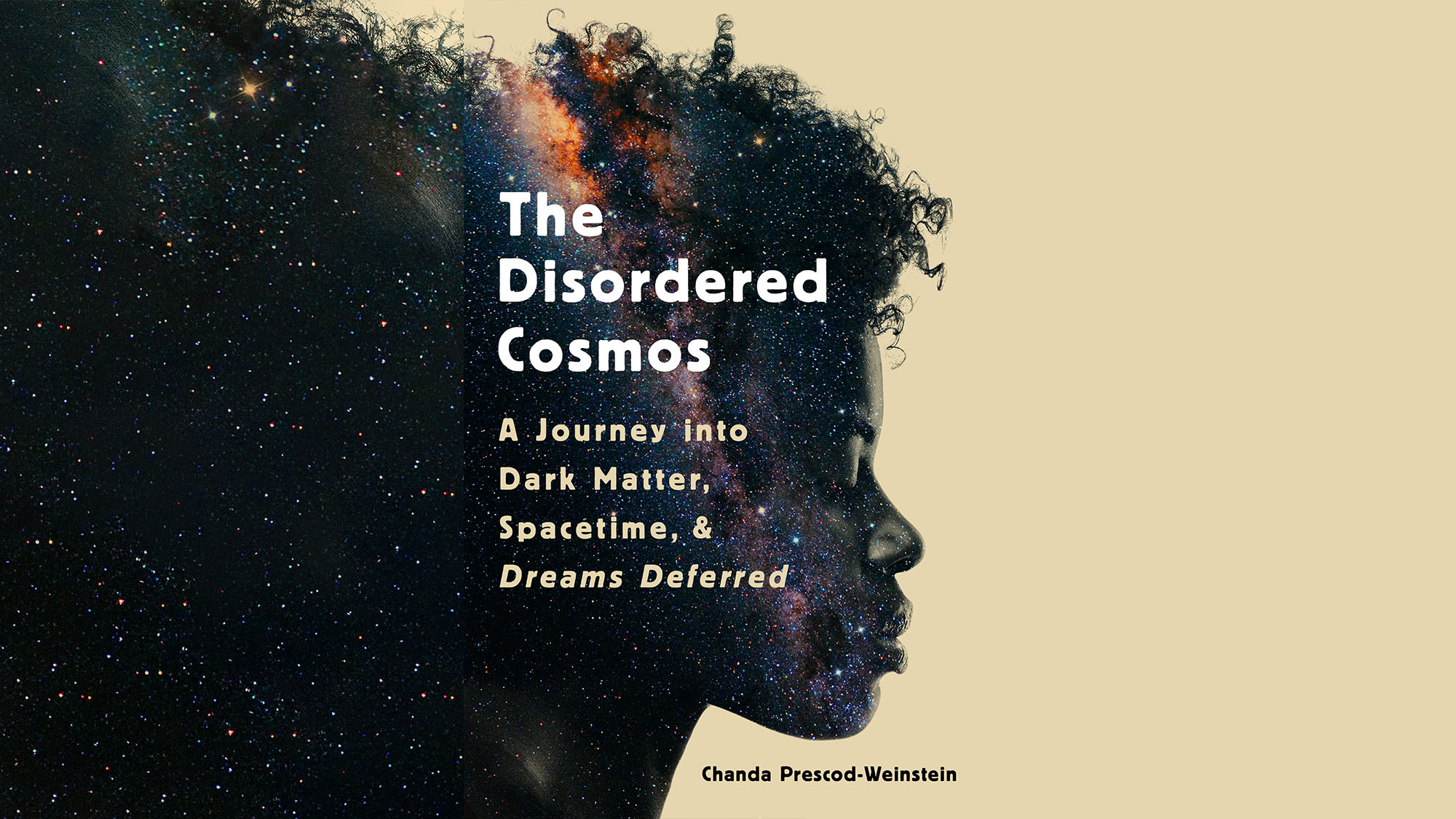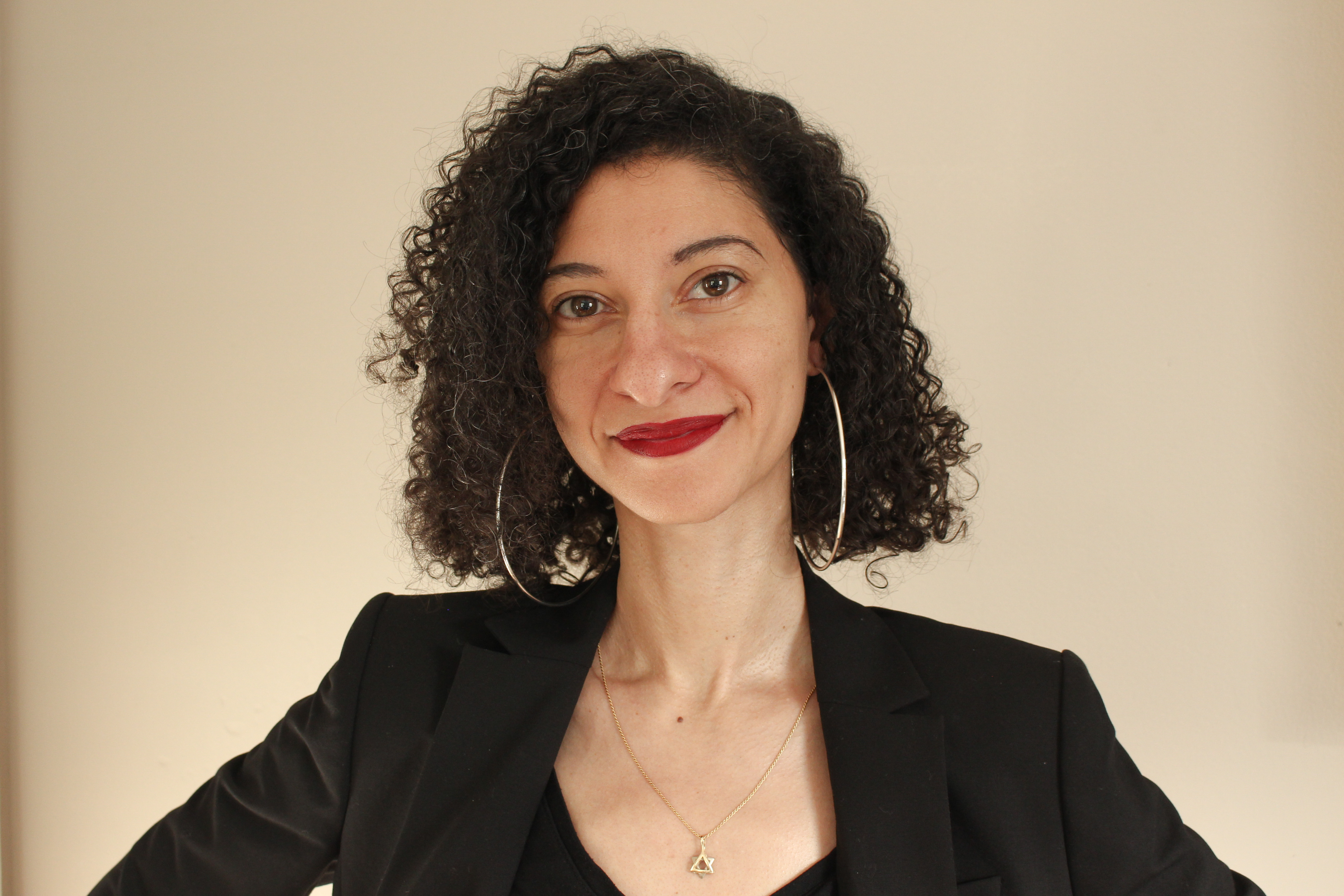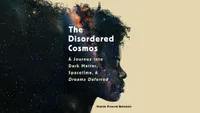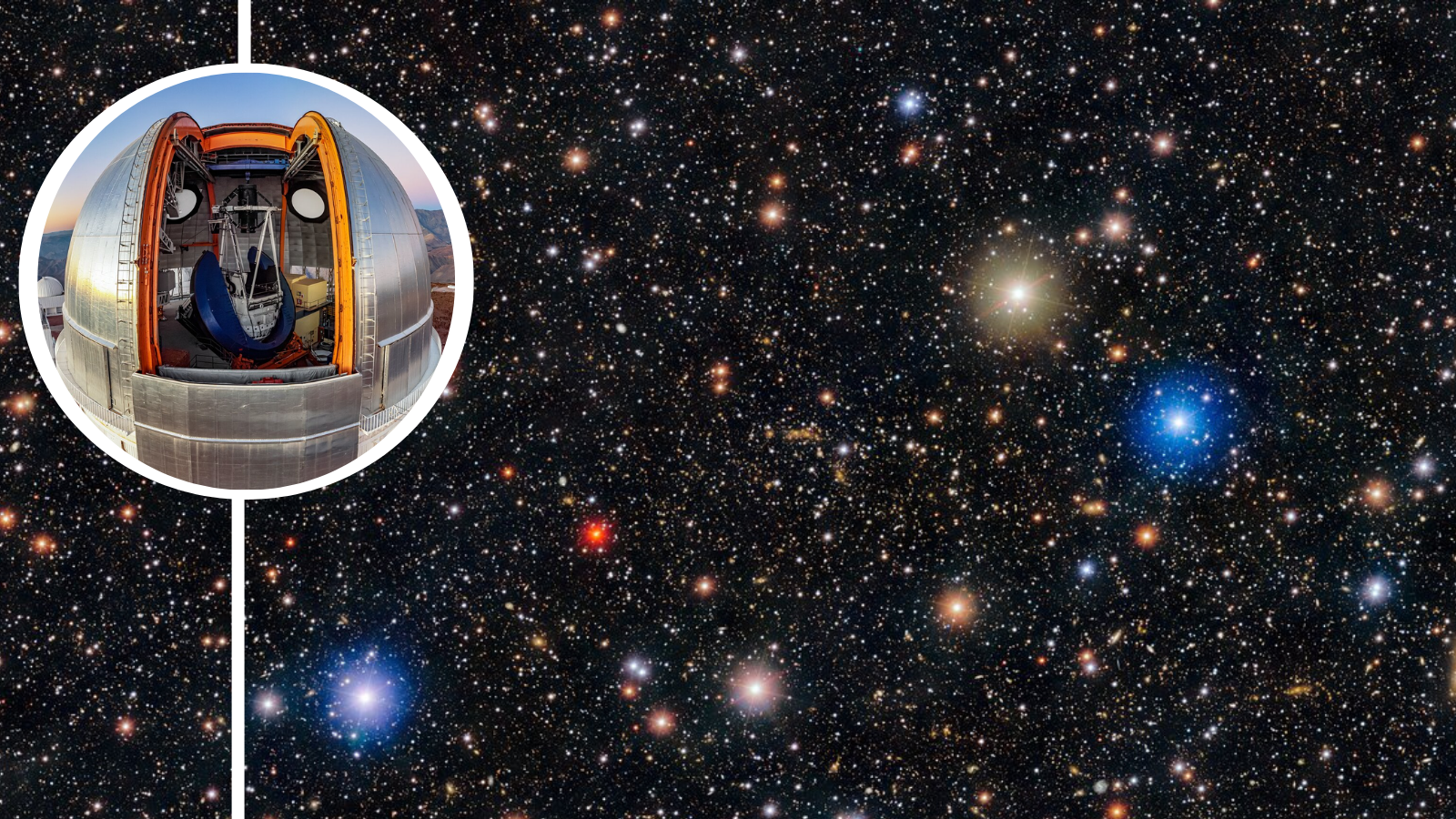In 'The Disordered Cosmos,' a physicist explores how physics and society intersect

Theoretical physics is supposed to be about pure, crisp ideas. But physics is done by humans, and human society brings messiness to any endeavor.
That reality means that every aspect of physics is marked by the social constraints of who is allowed to do physics in harmony with their identity and who is not. Chanda Prescod-Weinstein, a theoretical physicist at the University of New Hampshire, tackles the implications of that reality in her new book, "The Disordered Cosmos: A Journey into Dark Matter, Spacetime, and Dreams Deferred" (Bold Type Books, 2021). (Read an excerpt from "The Disordered Cosmos.")
Space.com sat down with Prescod-Weinstein to discuss her new book, the state of physics and how to dream up a better world. This interview has been edited for length and clarity.
Related: Best space and sci-fi books for 2021
The Disordered Cosmos: A Journey into Dark Matter, Spacetime, and Dreams Deferred
Bold Type Books, 2021 | $24.99 on Amazon
From a star theoretical physicist, a journey into the world of particle physics and the cosmos -- and a call for a more just practice of science.
Space.com: Could talk a bit about your research on axions as a dark matter candidate?
Chanda Prescod-Weinstein: The axion is a hypothetical particle that actually was first theorized to solve a problem in the standard model that has nothing to do with dark matter. And it was realized soon after people started playing with this idea that it could also solve the dark matter problem, potentially.
When I started working on the axion, it was taken seriously as a dark matter candidate, but really, I feel like most of the people who were working on it from a theoretical point of view, at the point in time that I started with were in Europe.
Breaking space news, the latest updates on rocket launches, skywatching events and more!
It's interesting to see how the axion has evolved socially over the last seven years. After the announcement by the Large Hadron Collider that there was no evidence for supersymmetry, a lot of people who had been thinking about supersymmetry started looking around for what other viable dark matter candidates there were that dreams of finding it hadn't yet been crushed, and so a lot of people turned to the axion. So now it's like this really hot, happening field.
Space.com: Can you talk a bit about how the book came to be and what you wanted to pull into it?
Prescod-Weinstein: I had been writing a lot online … [my agent] said, "You already have this body of work that certain audiences aren't seeing. Let's get it to a different audience." The original idea was that it would be an essay collection, and clearly the book became more than that and developed a throughline that kind of evolved as I wrote it. …
I think I'm naturally a holistic thinker who likes to draw connections between the things that interest me. For me, it's a very natural thing that I started thinking about, like, how is this chapter connected to this one? … I really started to think, there are clear themes here and those themes are readily organizable. That was how the four phases came about, is that I realized that they were really reflecting these different ways of looking at physics and the doing of physics.
What I think of the book as, it's a holistic look at the doing of physics. It's kind of like taking physics and rotating it and looking at where the symmetries are, but also where the asymmetries are.

Space.com: There's this beautiful phrase you write, "I wanted to be normal, but I felt I had to be extraordinary." Could you talk a little bit more about that?
Prescod-Weinstein: The book remains an essay collection of personal essays, that I would strongly argue, at the end of the day, aren't memoir, but certainly use my story as a springing point for exploring ideas about how science should be done and how science is currently done. We have this saying in the Black community that you have to be 200%, because people are going to assume that because you're Black, that you're less competent that you're just gonna have to work 200% harder to get half as far.
I think that's something that we're all taught as kids, and we're not taught that because people are trying to abuse us or anything like that. Our families are trying to prepare us for a world that doesn't accept us as human in the same way.
If we're thinking about things that motivate me, I want Black children to have childhood. And you can't have a childhood in the same way white children have childhood if at the very beginning you're having to say to your kids, like, "Look, I know at schools they're telling you that the police are there to protect you, but they're not," — if you're already having to do this kind of like double thinking.
Related: NASA astronaut Victor Glover explains why sometimes we can't just stick to space
And so there is an element of like, I just want to be and not have to spend a lot of time fighting to make space for myself, fighting to make space for others, I want other people to just be able to be so I don't have to fight for them, they don't have to fight for themselves. So that's definitely one element.
Queerness and queer theory is like, a huge throughline in the book. Because so much of what queer theory teaches us is that we're always going to be on the edge of normal, pushing what that even means. Blackness can be framed as a queer way of being, and my experience as a queer person can inform how I am negotiating the world as a Black person.
I want everybody to be able to push those boundaries in a way that is safe and uplifting and nourishing, rather than in a way that feels like you're allowing yourself to get stabbed over and over again and you're just saying yourself, it's just a flesh wound. And you know, to be able to make Monty Python references and be like, "Yes, I also like Monty Python."
Space.com: And that's actually a great segue to my next question, which was going to be what was the most joyful part of the book for you to write?
Prescod-Weinstein: I had a lot of fun hiding the Dear Mama part from my mom. [The afterword of the book is addressed directly to her mother, Margaret Prescod.] My mom didn't know about that until October, when I had like a week before the copyedits had to be returned. … I sent it to my mom and I was like, "You have a week to tell me if you have a problem with us before nothing can be done about it."
I was really excited to surprise my mom with that. It was fun, having this secret from my mom. I really felt like she put so much of herself into making me and therefore the book possible that I wanted to make sure that part of the book turned around, and said, "You are in this." And it was fun and exciting to be able to do that for my mom.
Space.com: In the final chapter, you write about your vision of physics and on building a physics that's grounded in Black feminism. For you, what are the principles that would make up that vision?
Prescod-Weinstein: I think what I do toward the end of the book is signposting, rather than definitive statements like, "This is how it's gotta be." Because my hope is that it starts a conversation where we start articulating, as members of a community together, how do we have this conversation with each other?
I think we have much to learn from queer theory and from some of the discussions that trans theorists have been having about what does liberation look like as a trans person? … There are lots of different ways to be trans in the world, there are lots of different ways to relate to gender or lack thereof in the world. So I definitely think that part of it has to be unpacking how we saddle ourselves with the burden of having to fit into slots. Another signpost there is mutual aid. Prison abolition, I think, is tied up in pretty much everything that I talked about. I don't spend a lot of time talking about prison abolition, but for me, it's an undercurrent.
Something that my mom said to me many times when I was growing up, she's a women's and caretakers' rights campaigner, is that when money went into the hands of women — and I think now she would say caretakers — when money and resources go into the hands of caretakers in the community, the entire community benefits. So one very clear theme there is that we put resources into the hands of the people who do caretaking, and then we allow them to do the kind of caretaking that involves saying, like, have you looked at the sky, and thought about your place in the universe? We allow people to have that kind of room to have that care for each other, for themselves?
We can talk about diversity in science until we're blue in the face. But until we're talking about the conditions that we live in, we're not really having a real conversation about how we make change happen.
Related: 16 amazing dark sky preserves around the world that protect the night sky
Space.com: That makes me think of that phrase that comes up so often, "Space is for everyone."
Prescod-Weinstein: Yeah. I love the idea that space is for everyone.
I think the International Dark-Sky Association is actually one of the most important scientific organizations out there, because they're really attending to what is our ecosystem in relation to the night sky? That is an astronomy question, it's an ecological question, it's a sociological question.
But I think that we have to take that seriously. It's great if a park gets designated as a dark sky park and I'm so glad that there's an organization that's working with national parks and with cities to address light pollution. But then the question I still have, is how do we get people to those national parks? How does everyone get to Joshua Tree in a way that's sustainable for Joshua Tree and for the actual Joshua trees but is also nourishing for us, spiritually, not in a supernatural sense, but in like the very human spiritual sense.
Space.com: That story in the book is so lovely. What do you give a little bit of a sort of teaser version of it?
Prescod-Weinstein: One of the stories that I tell in the book is my mom driving me to Joshua Tree to see I think it was Comet Hyakutake. To this day, I still have questions about how my mom paid for the gas to do that. That's not a simple expedition from Los Angeles.
It was one of my first times seeing a proper night sky. … It was one of my first hints that there was something wildly different about growing up in Los Angeles and growing up somewhere that didn't have the problems of pollution that we have in Los Angeles.
Space.com: Could you talk a little bit about the op-ed in Scientific American that you recently co-authored about James Webb and why naming a telescope for him is problematic, and then talk a bit about Harriet Tubman and her role in how you think about space?
Prescod-Weinstein: The op-ed is about what is called the next-generation Hubble Space Telescope, set to launch later this year. It's named after James Webb, who was a State Department official in the late 1940s and early '50s who played a very big role in the development of psychological warfare as a Cold War tool and then in the 1960s. And it is clear from historical records that he, like many of his contemporaries and pretty much everyone who was working in the presidential administrations of the time, was involved in the development of anti-LGBT policy that would eventually become hardwired government policy under Eisenhower. …
Under Kennedy, he became NASA administrator, so he's remembered in the astro community for his contribution to leading NASA through the Apollo program, etc. So he was not a scientist, nonetheless, the telescope is named after him. We essentially say in this op-ed that there's no reason the telescope should be named after someone whose legacy is, at best, complicated.
Let's let looking at the sky be part of our future, and what that guy stood for just be part of our past.
We propose at the end that rather than naming the telescope after someone like him, why not Harriet Tubman? There's an autobiography of Harriet Tubman — she couldn't read or write, so we're relying on maybe unreliable third parties — where she talks about using the North Star to escape to freedom. We know that there are other documented instances of people of her era using the North Star to run to freedom.
Harriet Tubman represents like everything that anyone has gotten right on this continent in the last 500 years. So why not literally put her up amongst the stars? I can't think of a more powerful use of astronomical information then using it to escape violent chattel slavery. If science does nothing else, that is what we should use scientific information for — liberation. So I want to send that message up into the sky. Why not put her out there with the stars that represented freedom?
It's going to be an incredible telescope, it's going to give us such incredible information, and I just love the idea of Harriet Tubman being associated with it. I don't know what's going to happen with the name, I don't know if it's possible to change it, if we do change it whether they will pick Harriet Tubman.
Space.com: Science people don't always want to talk about the social side of science, and your book really tackles that head on. Could you give the pitch for reading your book to someone who is coming from that perspective of, "I just want to focus on the science"?
Prescod-Weinstein: I just want to focus on the science, too! At the end of the day, the book is about how do we get to the point of being able to just enjoy science?
I, too, would like life to be simple; it is not. Some of us have the freedom to be like, "I'm going to look away," and some of us don't have the freedom to look away. In some sense, this book exists because people make the choice to look away and do nothing when they could do something to make the world better.
You can buy "The Disordered Cosmos" on Amazon or Bookshop.org.
Email Meghan Bartels at mbartels@space.com or follow her on Twitter @meghanbartels. Follow us on Twitter @Spacedotcom and on Facebook.

Meghan is a senior writer at Space.com and has more than five years' experience as a science journalist based in New York City. She joined Space.com in July 2018, with previous writing published in outlets including Newsweek and Audubon. Meghan earned an MA in science journalism from New York University and a BA in classics from Georgetown University, and in her free time she enjoys reading and visiting museums. Follow her on Twitter at @meghanbartels.

